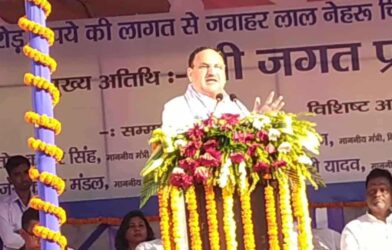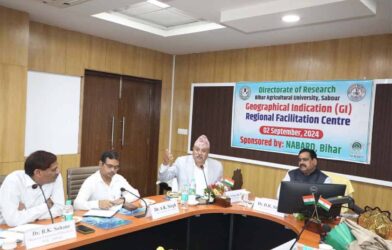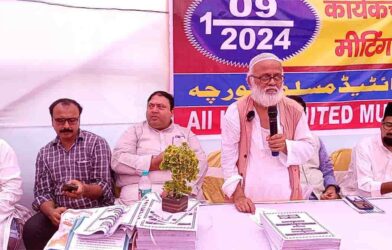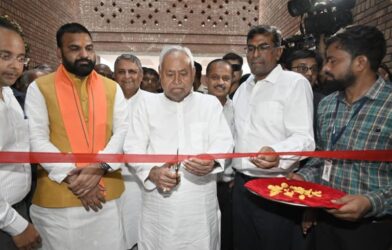By Alok Mohit
PATNA:All India Institute of Medical Science, Patna (AIIMS-Patna) doctors and World Food Programme (WFP) officials on Friday stressed on the need to promote fortification of food to address the problem of micronutrient deficiency among children and women.
Speaking as the chief guest at an event, ‘Public Health Lecture on Awareness about Fortified Rice’, AIIMS-Patna executive director Dr. Gopal Krushna Pal emphasized on the importance of food fortification as means to combat nutritional deficiencies.
The programme was organised at AIIMS-Patna by its department of community and family medicine (CFM) in collaboration with the United Nations World Food Programme (WFP) and the food and civil supplies department, government of Bihar.
“Food fortification is crucial, especially for pregnant and lactating women, children under five years of age, and high-risk groups with pre-existing conditions in Bihar,” Dr Pal said, while highlighting the programme’s focus on strategies to prevent micronutrient deficiencies through fortification.
WFP deputy country director Nozomi Hashimoto, who was the guest of honour, said the fortification programme in India was progressing well. “The lecture event is part of the WFP initiative to ensure that fortified rice is properly utilised,” she added.
During the technical session, Dr Pragya Kumar, additional professor, CFM department, AIIMS-Patna, said tackling micronutrient deficiencies or hidden hunger was a major challenge because of dietary choices, cultural and behavioural factors, cooking and storage practices, poor healthcare infrastructure and lack of awareness. Food fortification, apart from diet diversification, biofortification and nutrition education offered a solution to this challenge, she said.
Dr. Shariqua Yunus Khan, head, nutrition & school feeding unit, WFP, said the fortification initiative aimed at reaching 813 million people in India by 2024. “The government has launched a three-phase strategy to implement rice fortification programme. The initiative is in the third phase now,” she said.

Sharing an update on the status of fortified rice in Bihar, WFP’s senior programme associate Vrinda Kiradoo said as of April 2023, more than 116 million people were consuming fortified rice in the state. She said the event was an awareness programme on the importance of fortified staple foods. “Another intention behind the event is to bust the fallacies which are lurk in peoples’ mind such as fortified rice is made up of plastic, fortified staple foods looks, smells and tastes different from the normal unfortified staple foods,” she said.
Others who spoke on the occasion included Dr CM Singh, dead, CFM department, Dr Punam Prasad Bhadani, dean, students affairs, AIIMS-Patna and Dr Prem Kumar, dean (research), AIIMS-Patna.
Sayed Zeyaul Haque of AK Creation, the implementing partner of the rice fortification campaign in Bihar, proposed a vote of thanks.
(Author Alok Mohit is former senior News Editor of Hindustan Times Patna and Chandigarh editions; can be contacted at mohit.alok19@gmail.com)










